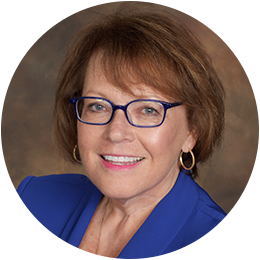
One of the advantages of having a long career in the field of credentialing and privileging is a perspective on how the field has changed over the years. I started in the field before the internet, email, when phones were answered personally (no voice mail) – and before there was much that automated credentialing. So here are some things that I’m thankful for from a credentialing perspective.
Faster credentialing turnaround times
I’m thankful that it doesn’t take six to nine months to credential a new provider. That used to be the standard time frame. And – that is why most providers received temporary privileges. It was just too long of a wait.
Efficient application processes
I’m thankful that it doesn’t take four to five hours to process a new application. I used to time myself and that is how long it look to send out all the verification letters, make copies of the attestation, address and stuff envelopes, etc. And – that was just the beginning of the process!
Lightning speed of license verification
I’m thankful that verifying a license takes seconds (via websites) rather than weeks or months. In order to verify a license, it used to be necessary to write a letter to the state medical board and wait...and wait…for a response.
Copy machines are a thing of the past
I’m thankful that copy machines are no longer an essential piece of equipment for credentialing. I felt like I used to spend hours standing at the copy machine when processing credentials files. Ugh!
Credentialing is an essential element of patient safety
I’m thankful that the credentialing process is recognized as an essential element of patient safety. It used to be viewed as work that was necessary to meet accreditation standards. The acknowledgement of the importance of credentialing has also elevated the status of those who perform and manage credentialing.
Understanding the importance of credentialing
I’m thankful that more physician leaders understand the importance of credentialing and don’t just ask “where do I sign?” when it is time to make a credentialing and privileging recommendation.
Credentialing educational opportunities
I’m thankful for all of the credentialing education opportunities available today. It was difficult when I started in this field to find seminars (and webinars did not exist).
New credentialing and privileging opportunities
I’m thankful that there is always something new to learn about credentialing and privileging. I have always been challenged and never bored.
More organizations' credentialing and privileging departments are completely paper-free
I’m thankful that the percentage of organizations that are totally electronic for their credentialing and privileging is climbing. When I spoke at NAMSS years ago about paperless credentialing, I know that some thought that it would never be possible (and that I was a little wacky).
Development of the credentialing and privileging industry
Finally, I’m thankful that I’ve had the opportunity to work in the credentialing and privileging industry and to have been able to have had a part in the development of tools to automate these processes. And – we aren’t done automating yet. There are exciting times ahead! Have a wonderful Thanksgiving!
